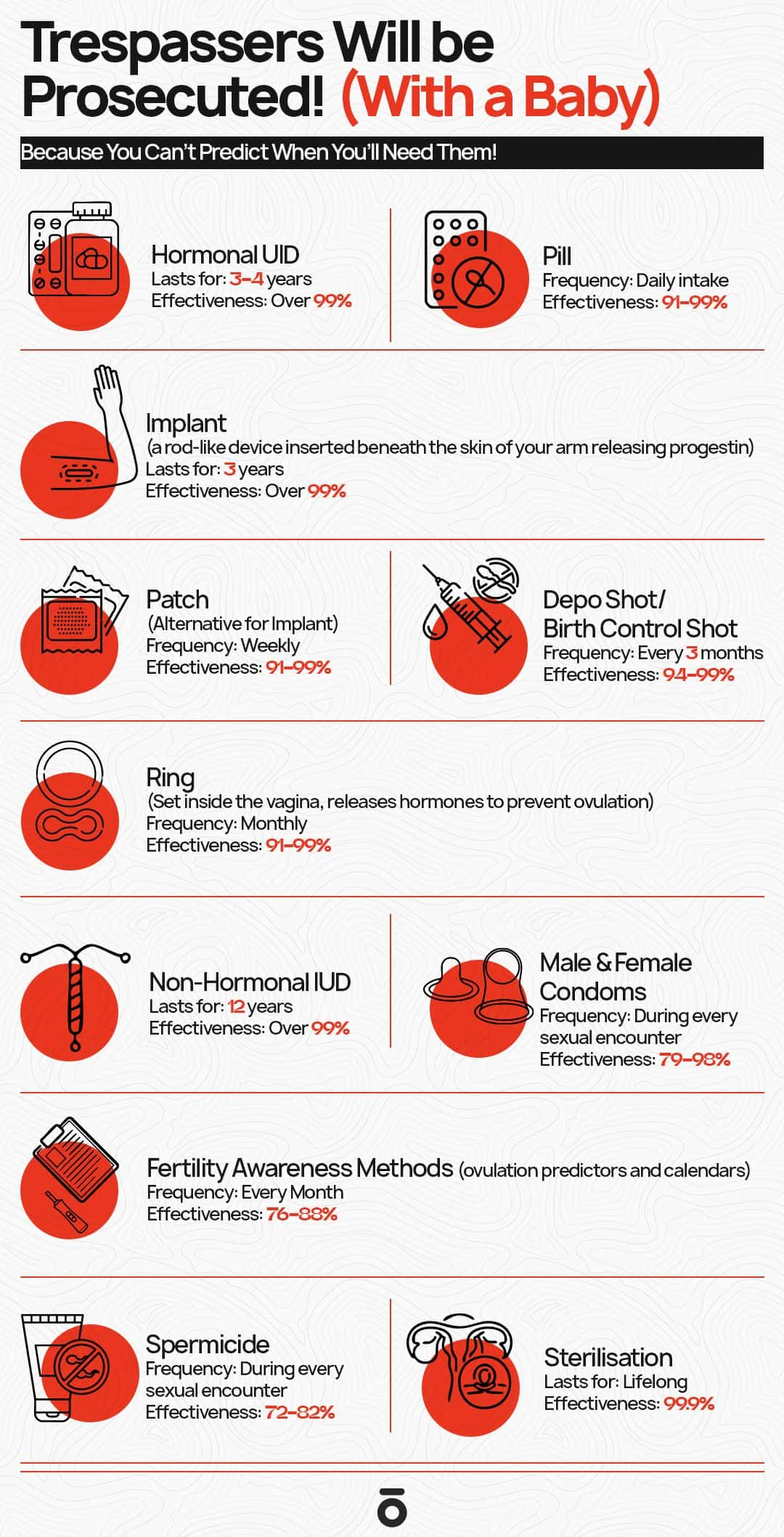Home
Blogs
Hush Talks
What Are the Reasons for Adopting Contraceptive Methods? A Guide for Students and Adults
What Are the Reasons for Adopting Contraceptive Methods? A Guide for Students and Adults

Introduction
In October 2024, people were outraged when they heard that the Central Drugs Standard Control Organisation (CDSCO) would likely impose a ban on the OTC sales of all hormonal contraceptives, including emergency contraceptive pills (ECPs), in India.
The CDSCO decided to take this step based on the supposed “overuse” of these drugs by women. The flipside was that it impacted contraceptive health negatively. Sex is already considered a hush-hush topic in India, and talking about contraception is thus neglected.
It was previously speculated that a doctor’s prescription would be required to obtain an ECP. The CDSCO has now clarified that there is no such recommendation to move ECPs from over-the-counter (OTC) to prescription status.
This comes as a relief, as women need ECPs for many different reasons. There is a stigma attached in India, even with doctors, when it comes to anything regarding sex and female reproductive health. Having to go to a doctor every time you need an ECP means you have to hope that they do not judge you or ask if you have a long-term partner.
That being said, making informed decisions about our health and future is empowering. One of the most significant decisions many individuals and couples face is whether or when to have children, and the availability of contraceptives plays a massive role in influencing such decisions.
What are Contraceptive Methods?
Contraceptive methods have been at the forefront of preventing unwanted pregnancies, helping women control conditions like PCOS and the hormonal imbalances associated with it. Most importantly, these methods give people the option of when they want to have children, which in today’s world is not a decision that should be taken lightly.
At its core, contraception is simply the prevention of a pregnancy. This can be done using various methods, devices, or medications to prevent sperm from meeting an egg or to stop a fertilised egg from developing in the womb.
Here are some of the most commonly used contraceptive methods: Contraceptive methods have been at the forefront of preventing unwanted pregnancies, helping women control conditions like PCOS and the hormonal imbalances associated with it. Most importantly, these methods give people the option of when they want to have children, which in today’s world is not a decision that should be taken lightly.
At its core, contraception is simply the prevention of a pregnancy. This can be done using various methods, devices, or medications to prevent sperm from meeting an egg or to stop a fertilised egg from developing in the womb.
Here are some of the most commonly used contraceptive methods:
1. Barrier methods: Condoms, cervical caps, diaphragms etc essentially create a barrier and block the sperm from entering the vagina.
2. Hormonal methods: This method uses small doses of hormones to prevent the egg from releasing, or to create a barrier for sperm (e.g., pills, patches, and injections).
3. IUDs: These are small devices that are inserted into the womb and create an inflammatory reaction that is toxic to sperm, thus preventing them from reaching the egg.
4. Permanent Methods: Surgical procedures like vasectomy or tubectomy are for people who have decided they no longer wish to bear children in the future.

The Primary Reason for Adopting Contraceptive Methods: Family Planning
In the past, contraceptives were not something that was widely available or even talked about, but times have changed today. People have multiple options for conceiving a baby, and at the same time, there are many options for preventing it. Having a choice is a privilege, but how can contraceptives help in family planning?
Deciding the ‘When’ and ‘If’ of Parenthood
Having a choice in the matter and the availability of contraceptives empower individuals and couples to consciously decide when and if they want to have children. Controlling the timing of pregnancy gives people the chance of becoming mentally, emotionally and financially stable before taking on the responsibility of raising a child. On the contrary, people who don’t want to have children can also take advantage of the various contraceptive options to live a child-free life.
The Importance of Birth Spacing
Using contraceptives is essential for Birth Spacing. Doctors recommend waiting for at least 18-24 months before getting pregnant after having a child. Birth spacing allows the mother to recover after her first pregnancy and subsequently reduces the chances of premature birth. Timing your pregnancies not only keeps the mother healthy but also has better outcomes for the whole family in terms of mental and financial preparation.
Achieving Desired Family Size
Contraceptive methods allow people to decide their family size. Whether someone wishes to have one child, two, or no children at all, contraception allows people to reach their own desired family goals while enabling people to have children they can care for and support.
What Could Be the Reason for Adopting Contraceptive Methods Beyond Pregnancy Prevention?
Managing Personal Health and Medical Conditions
Apart from preventing pregnancy, many people choose to use contraception for significant health benefits, especially hormonal contraceptives, which regulate hormones and provide relief for conditions that women experience related to their hormonal health.
In some cases, hormonal contraceptives may treat conditions such as irregular cycles, dysmenorrhea, menorrhagia, Polycystic Ovary Syndrome, endometriosis, and severe acne by regulating the hormones. In addition, some contraceptive methods can reduce risk factors for certain cancers, especially ovarian and endometrial cancer.
Financial Stability and Career Advancement
People often have children without considering the financial repercussions, which can then cause families to struggle or be unhappy. The use of contraceptives gives people the opportunity to be financially stable and independent before having children.
It gives women the flexibility to establish a secure foundation for themselves, pursue their educational goals and career ambitions before embarking on the journey of becoming a parent.
So, What Should Be the Reason for Adopting Contraceptive Methods for You?
Choosing contraception is a deeply personal decision. There is no all-encompassing "right" reason to choose a specific contraception method. The right reason is the one that fits your life, your health, and your goals.
Whether you are trying to prevent a pregnancy, manage a health condition, or take control of your education, career, or personal freedom, your reason for contraception is valid. Having control over reproductive choices is more than just practical; it's empowering. It's about having control over your body, your time, and your future.
Given the numerous possibilities and the uniqueness of each individual, it is essential to consult with your doctor first. They can review the pros and cons and help you find a method that suits your body and supports your goals. Because reproductive freedom is not only a right, it’s a personal choice.

Conclusion
Ultimately, contraception is more than preventing pregnancy; it’s about choice, control, and empowerment. Everyone has the right to decide what is best for them and their reproductive health.
Educating yourself about what is available to you and discussing it with a trusted healthcare provider will help you select a method that supports your health and aligns with your intentions. Because when it comes to your reproductive health, you should be the one deciding, and that’s the way it should be.

FAQs
Q. What could be reasons for adopting contraceptive methods class 10?
A. The main reasons for using contraceptive methods are to prevent an unplanned pregnancy, plan a family, space pregnancies, and to accomplish your goals in the areas of personal, educational, and career-oriented fields.
Q. What are the major reasons for using contraception?
A. Some of the key reasons for contraception include family planning, preventing unplanned pregnancy, achieving health goals such as managing specific health conditions like PCOS, financial responsibility, and career goals.
Q. What is the need of contraception class 10?
A. The need for contraception often develops from consideration of unwanted pregnancy, family planning, birth spacing, and to assist in achieving personal and career goals.
Q. What factors do you consider when choosing a contraceptive method?
A. You need to consider your personal health, lifestyle, future goals, and situation before you stick to a contraceptive method. It is always important to consult a healthcare professional regarding this.
Q. Which contraceptive is best for an unmarried girl?
A. Simply put, there is no "best" contraceptive method. It depends on individual health, lifestyle, and preferences. This is a discussion that should always be had with a doctor.
Q. What is the best contraceptive method and why?
A. The best method of contraception is always personal and is relevant to your health, lifestyle, and future goals. Always meet with a doctor to discuss contraception options.

Are Contraceptive Pills Safe? A Complete Guide to Methods, Risks & Hormonal Effects

What Are the Barrier Methods of Contraception and How Do They Prevent Pregnancy?

Pregnancy and Contraceptives: What You Should Know

A Guide for First-Time Parents in 2025 – Best Advice

Breaking the Taboo Around Sexual Health – Let’s Discuss


